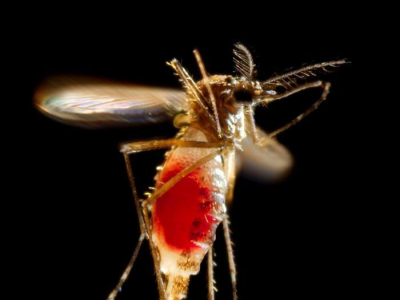Jul 2, 2010
GAO calls for national biosurveillance strategy and director
To guard against biological weapons attacks and natural disease threats, the United States needs a comprehensive biosurveillance strategy with one body or person in charge, says a new report from the Government Accountability Office (GAO), the investigative arm of Congress. Although several cabinet departments, including Health and Human Services, Homeland Security (DHS), and Agriculture, have taken steps toward developing a national biosurveillance capability, "there is neither a comprehensive national strategy nor a focal point with the authority and resources to guide the effort to develop a national biosurveillance capability," the report says. A national strategy could guide federal agencies and other stakeholders to systematically identify risks, resources needed to address them, and investment priorities, according to the GAO. The report recommends that the Homeland Security Council move to establish an interagency council or designate an individual to direct the development of a national strategy, in conjunction with federal agencies. The report says DHS officials generally concurred with the GAO findings and recommendations. DHS officials commented that the DHS National Biosurveillance Integration Center has identified strategic planning gaps and could help provide leadership for the strategic planning effort.
Jun 30 GAO report (144 pages)
Indonesian woman dies of H5N1 infection
Indonesia's health ministry recently announced the death of a 34-year-old Jakarta woman from H5N1 avian influenza, according to a translated statement from the country's communications ministry that was posted today on the Bird Flu Information Corner blog, which is part of a collaboration between Kobe University in Japan and Airlangga University in Indonesia. The woman got sick on May 25 and sought care 2 days later. She was hospitalized at a private facility the next day. After her pneumonia worsened, she was transferred to a regional hospital in Tangerang on Jun 1, where she died the same day. An investigation into the source of her infection revealed no apparent contact with birds, though she grew ornamental plants in her yard and had recently visited relatives in Tangerang city, which the ministry said is an H5N1-endemic area. No flu-like symptoms have been noted among the woman's contacts or healthcare providers. The health ministry said it has reported the woman's illness and death to the World Health Organization (WHO). If confirmed by the WHO, the woman's case will raise Indonesia's H5N1 count to 166 cases with 137 deaths, highest in the world. Once the case is added to the WHO's H5N1 count, the global count will reach 500 cases.
US government offers smartphone apps for food recalls
The US government is beginning to provide product recall applications for smartphones, making it possible for consumers to quickly access information about recalls of food and other products, the US Department of Agriculture (USDA) announced today. The product recall app for the Android smartphone is available at the USA.gov Web site, and apps for the Blackberry and iPhone will soon follow, the agency said. The applications will include features that enable consumers to search recalled products by product name or category and also to report concerns about unsafe products. The Android app was unveiled by the General Services Administration as part of the new Mobile Apps store on the USA.gov site, which will collect and provide all mobile applications developed throughout the government, the USDA said. "Alerting consumers quickly to food and product recall information through this technology can prevent untold illness and save lives," Agriculture Secretary Tom Vilsack said in the USDA release.
Jul 2 USDA press release


















